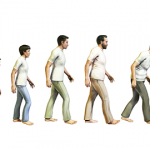Steady hands, nerves of steel: The endoscopic transphenoidal hypophysectomy is a delicate neurosurgical procedure. Using a three-dimensional microscope and a powerful magnetic resonance imaging machine to guide them, the surgeon must meticulously dissect the throat tissues, navigate through the palate and the sinuses to reach the base of the skull where the pea-sized master gland, the pituitary, resides in a bony hollow. Excising a pituitary microadenoma, a speck of a tumor often the size of a sesame seed, without disturbing the neighborhood requires a pair of steady hands, great eyesight, nerves of steel and a strong spine that can tolerate the lengthy sitting and standing required for this procedure. So it came as a surprise when an acquaintance, a neurosurgical resident training to become an expert in this procedure, related how his mentor, one of the foremost authorities in this field, was 80 years old and still going strong, having performed well over 5,000 of these surgeries. With a striking success rate and few complications, he is a star surgeon who continues to attract patients from around the world. Impressive!
Some surgeons thrive well into their seventh decade and even beyond. Consider the field of cardiovascular surgery. Many of its seminal advances, including the development of the artificial heart and coronary artery bypass procedures, can be traced to the pioneering efforts of two towering Texans, the late Denton Cooley, MD, and Michael DeBakey, MD, who each performed tens of thousands of cardiac procedures over their long, illustrious careers, which extended well into their 80s.1
When it comes to longevity, few, if any, physicians or surgeons can or will top the feat of our own cherished colleague, the late Ephraim “Eph” Engleman, MD, the founder of the Rosalind Russell/Ephraim P. Engleman Rheumatology Research Center at the University of California, San Francisco. Eph’s career spanned more than eight decades and continued until his death in 2015 at the age of 104. Among his aphorisms for living a long and healthy life, he recommended avoiding air travel, exercise and vitamins; he encouraged having sex, maintaining many intellectual interests and never retiring!2,3 Eph had a sharp mind and keen wit until the end.
That said, how secure would you feel if, on your next flight, an octogenarian pilot emerged from the cockpit? For commercial airline pilots, the Federal Aviation Administration mandates a compulsory retirement age of 65. Once commercial pilots reach the age of 40, they must obtain a medical evaluation every six months to continue to serve as pilot in command.4 If a rule mandating the age of retirement applied to doctors, as is the case in most of Europe, the precipitous decline in the number of practicing physicians might paradoxically worsen patient safety.5


